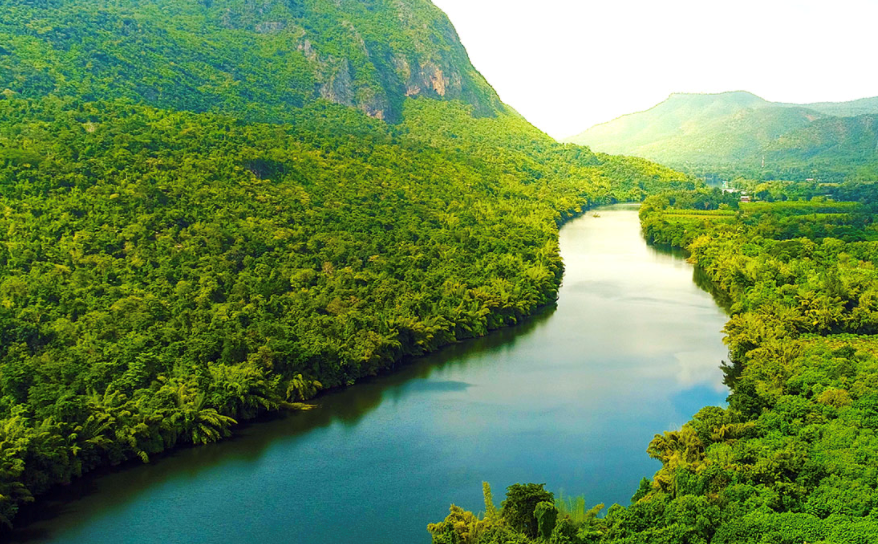WWF’s DFCD Africa team does their first in-country visit, to Kenya
With Covid-19 travel restrictions being lifted almost across the globe, the WWF’s DFCD Africa team was finally able to travel to Kenya. Gillian Trollope, junior advisor DFCD Africa, about their journey past the local WWF office and various project teams.
Gillian Trollope: "Nairobi, the city with the friendliest people and its infamous traffic that never stops. Upon arriving in the Kenyan capital, we were met by both these key features of the city. The travelling team, which, in addition to me, consisted of Jonty Rawlins (senior advisor on the DFCD Africa team) and Ian Isherwood (the DFCD lead at WWF Kenya), was ready for a busy week of visiting projects that are a potential fit for the DFCD.
InsectiPro
The trip first took us to Limuru Town, where we visited InsectiPro - Insects for Food Security. At the project, nestled between hectares of bright flower tunnels, we met Talash Huijbers, founder and CEO of InsectiPro, who was eager to show us around her establishment.
InsectiPro consider themselves “food chain-gers” as they aim to create sustainable, nutritious and profitable systems that will positively change the current food and value chains. They focus on large scale production of black soldier flies (BSF) for animal feed additives and cricket production for human nutrition. Insect proteins are one of the most abundant sources of alternative proteins on the planet. With Africa's population increasing rapidly, driving a massive increase in demand for meat products, such as fish, chicken and beef, the market is ripe for new and more sustainable opportunities that don't heavily impact and damage our environment.
InsectiPro creates a circular food chain, where BSF converts food waste into by-products such as low-cost, high-quality animal feed and organic fertiliser. Their production facility in Limuru is currently producing 1,2 ton a day of larvae and they aim to double this during 2022. By 2023, they aim to expand to Kisumu, Uganda and Rwanda.
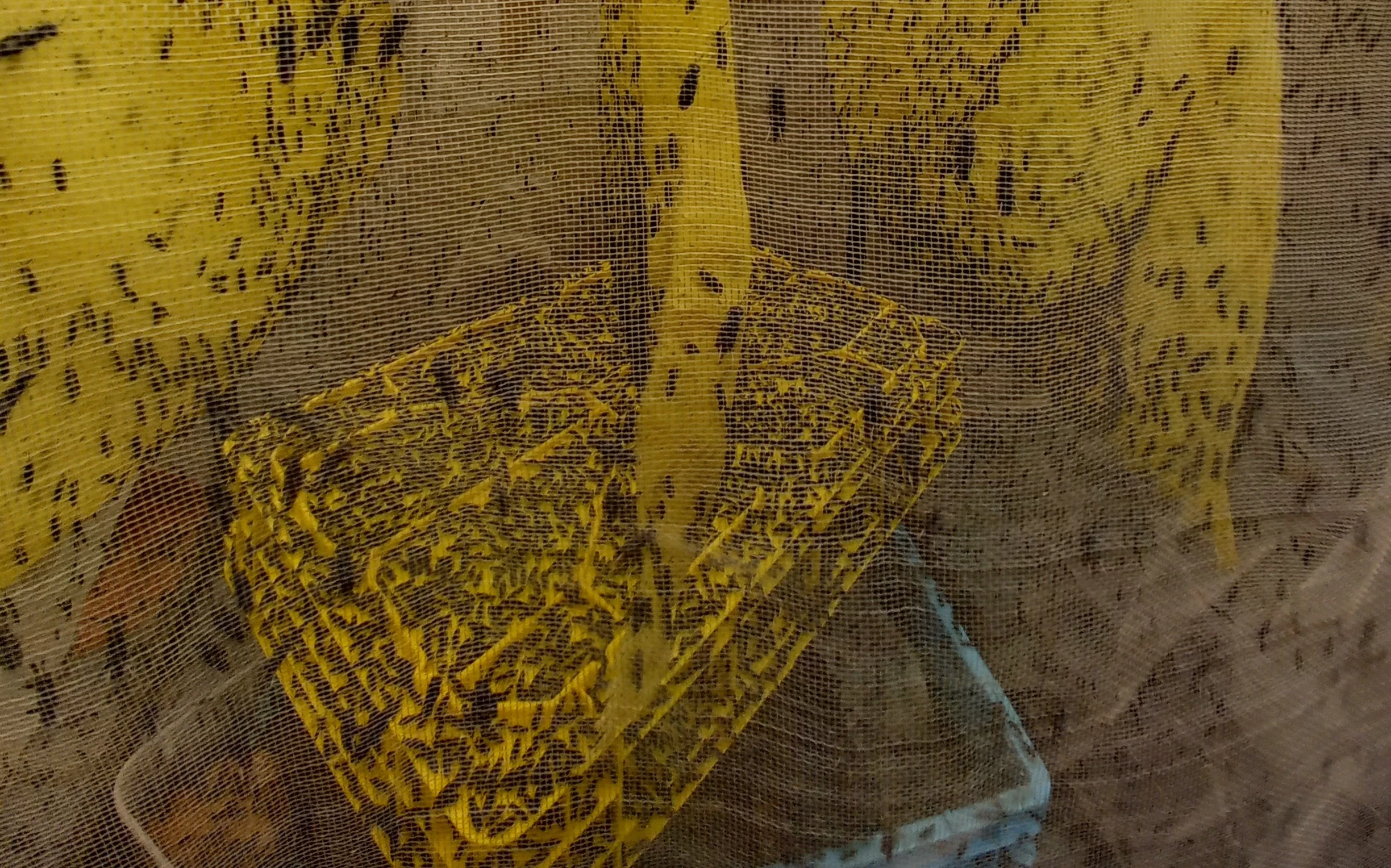
Net boxes housing black soldier flies (BSF)
© Ian Isherwood - WWF Kenya
Kilifi Moringa Estate
The next project the African team visited was the Kilifi Moringa Estate (KME), on the South-East coast of the country. CEO Papu Haroon and board member David Tyrrell showed us the 25 hectare farm fresh leaf processing facility of the impressive Moringa tree that lives here under the perfect circumstances. It only takes eight months to reach production, grows easily in very sandy soils, does not need irrigation and has very few natural pests. The leaves of the Neem tree, which are plentiful in the area, are used to make an organic pesticide which is sprayed on the Moringa trees. The leaves as well as the seeds are harvested from the Moringa trees.
Kilifi Moringa Estate has a great opportunity to positively impact coastal communities and improve the livelihoods of thousands of small-holder farmers while building a long-term sustainable business. Papu and the KME team have spent years getting to where they are and have shown the grit, determination, and skills needed to achieve their mission.
KME produces and processes 120MT of Moringa leaf and 40MT of Moringa seed oil which is sold to export markers. KME works with over 600 out-grower farmers, of which 87% are female, who consume a large portion of their own Moring leaf products and sell their Moringa seeds to KME for additional income. The company is applying for a Stage 1 DFCD grant. Supporting KMEs mission not only supports a scalable climate-smart business, but a company that works closely with local communities and nature.
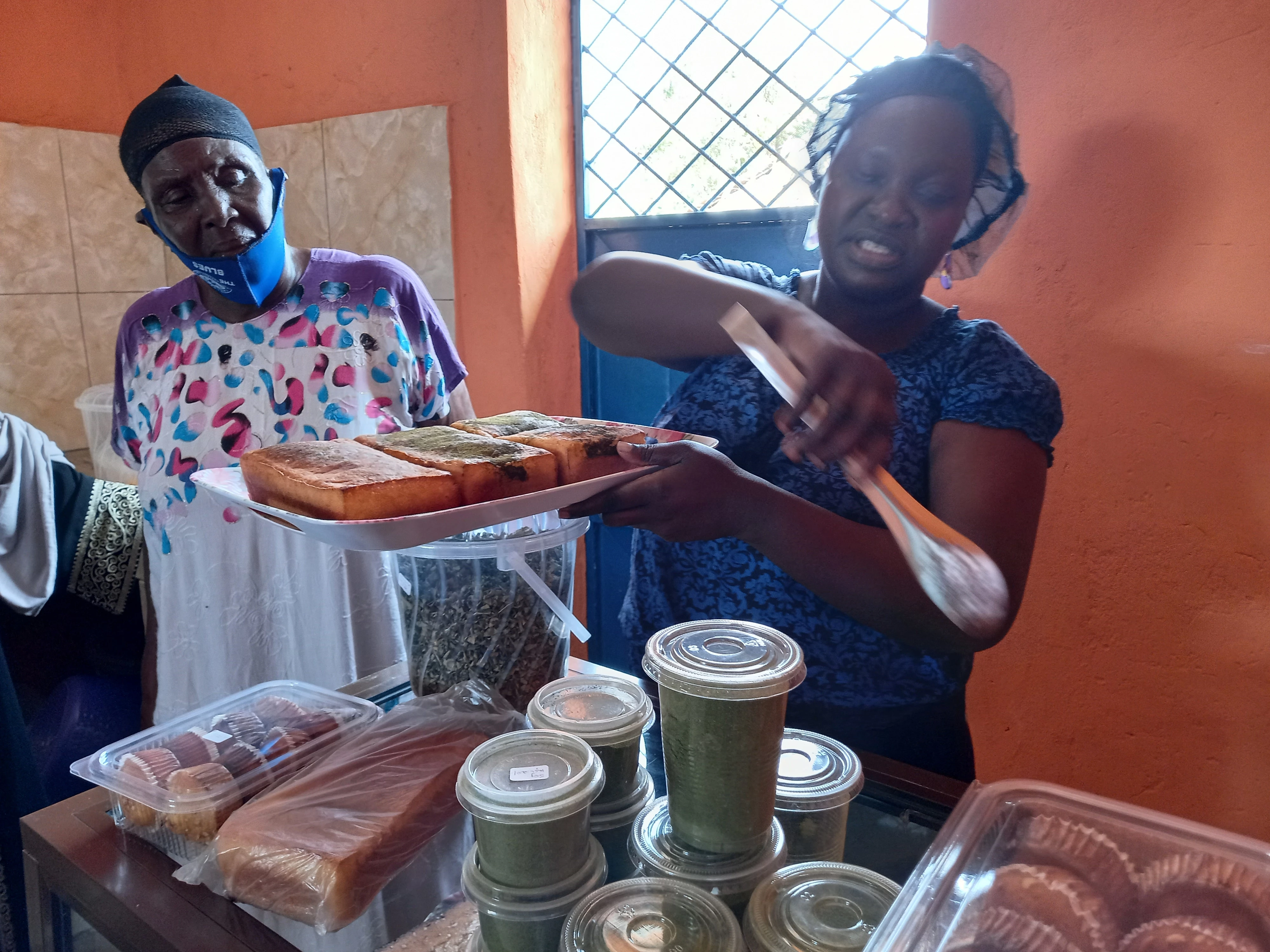
Out-grower farmers, predominantly women, process the Moring leaves grown on their farms into baked goods and power which they sell to local communities, generating additional income for their families
© Ian Isherwood - WWF Kenya
BuildX
Africa has the fastest-growing population in the world, predicted to increase to 2.5 billion by 2050, which will require hundreds of millions of new homes, not to mention modern commercial buildings and smart, green, cities. Therefore, we were delighted to visit BuildX Studio in Kenya's first operational Special Economic Zone. The company aims to take a full value chain approach for building houses from Cross-Laminated Timber (CLT), starting at sustainable forests to constructing timber buildings which can be seen as a net-negative carbon, faster and potentially more affordable solution for urban buildings.
The BuildX team is on a mission to establish a commercially viable mass timber sector including local CLT production, which will have an immensely positive impact on sustainable forestry, on a regional level. It is currently importing CLT from South Africa with the aim of finding a local or regional supplier which meets their quality and sustainability standards. They aim to raise USD 1 million to develop an investable real estate project in Nairobi which will be critical in establishing mass timber markets in East Africa.
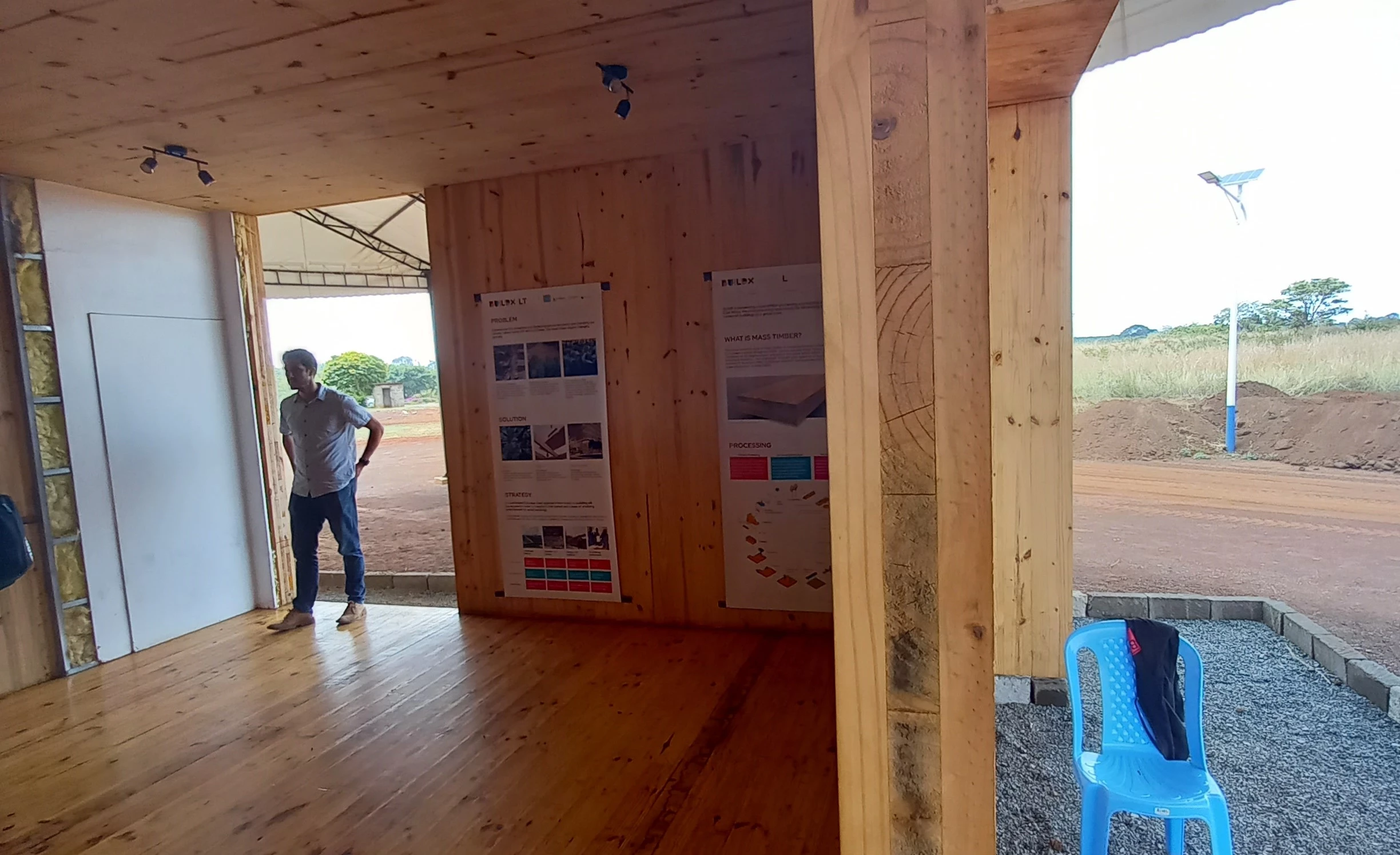
The BuildX cross-laminated timber prototype
© Ian Isherwood - WWF Kenya
Taka Taka Solutions
Lastly, we visited a company that adresses a global problem at a national level. Taka Taka Solutions, Kenya’s largest waste management company by volume, collects over 60 tons of Nairobi’s waste per day which is then sorted and recycled. Interestingly, 60% of the waste collected is organic and is composted and sold to farmers to increase soil fertility.
Plastic waste in Kenya and across Africa is a problem that is not being sufficiently addressed. Roughly 80-90% of African plastic waste is inadequately disposed of and at risk of causing environmental damage. With increasing environmental awareness and growing environmental concerns, the plastic recycling market is expected to have a steady growth. Unlike most recycling facilities in Kenya, Taka Taka Solutions has the ability to recycle hard-to-recycle plastics, such as thermoformed PET plastics, heavily printed or multi-layer flexible plastics through their state-of-the-art hot-washing and pelletizing equipment.
As part of their Stage 2 DFCD application, they aim to improve their capacity to source, process and find offtake markets for the hard-to-recycle plastics.
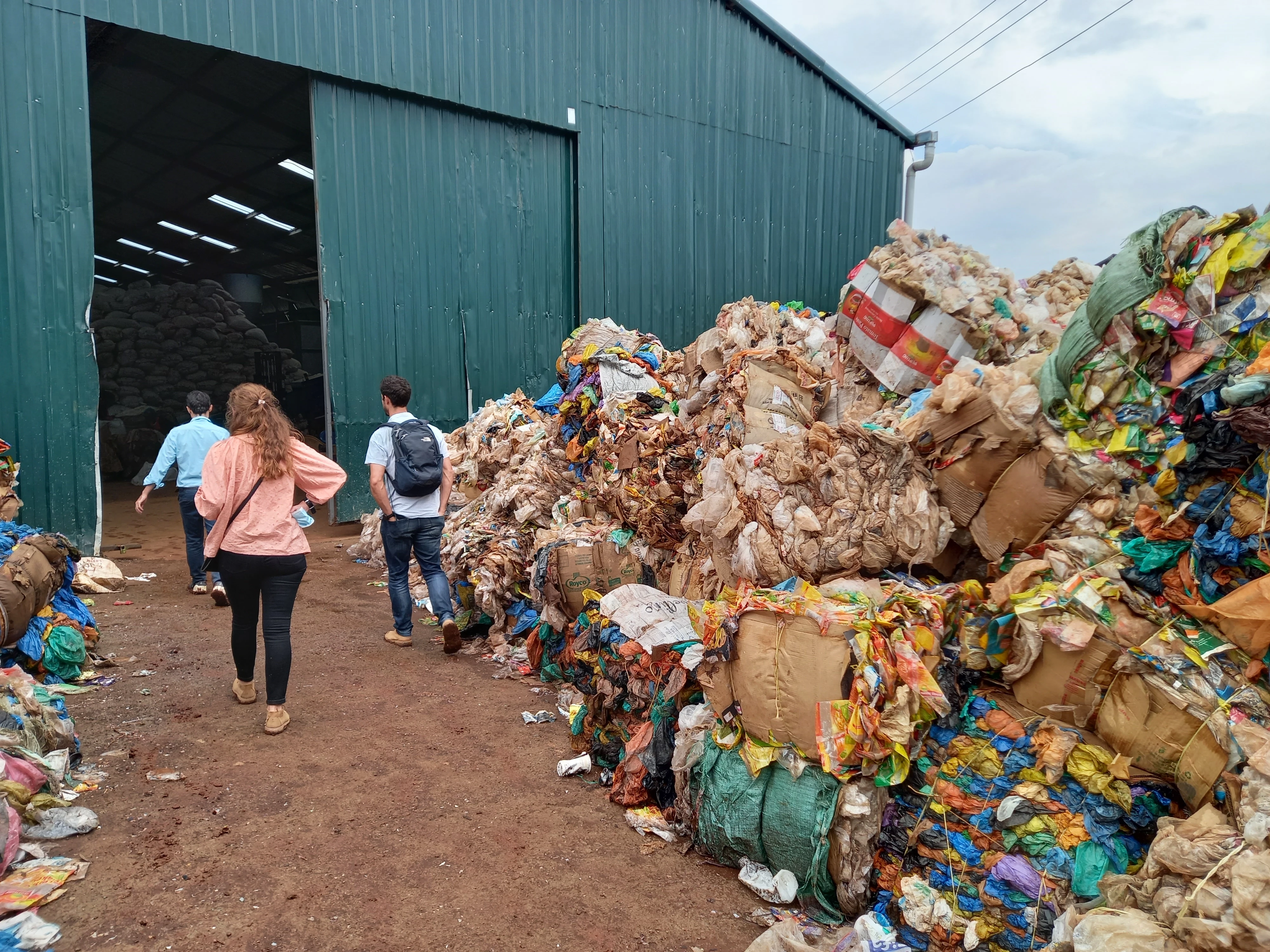
Bales of sorted waste, ready to be recycled at the Taka Taka recycling facility
© Ian Isherwood - WWF Kenya
Visiting these projects in person makes one realise that assessment forms, presentations, emails and Zoom calls do not capture the true spirit of the projects and the passion of their founders. Hopefully this is the start of many more in-country visits where we can meet more interesting people and continue to grow the pipeline of bankable nature solutions in Africa."
Ian Isherwood, DFCD lead WWF Kenya, contributed to the story
About DFCD
The Dutch Fund for Climate and Development (DFCD) is a climate fund, dedicated to supporting climate adaptation and mitigation projects which benefit vulnerable communities and landscapes. Initially funded by the Dutch government, it is powered by a consortium of four expert organisations: FMO (Dutch Entrepreneurial Development Bank), CFM (Climate Fund Managers), SNV, a global development partner, and WWF Netherlands.

